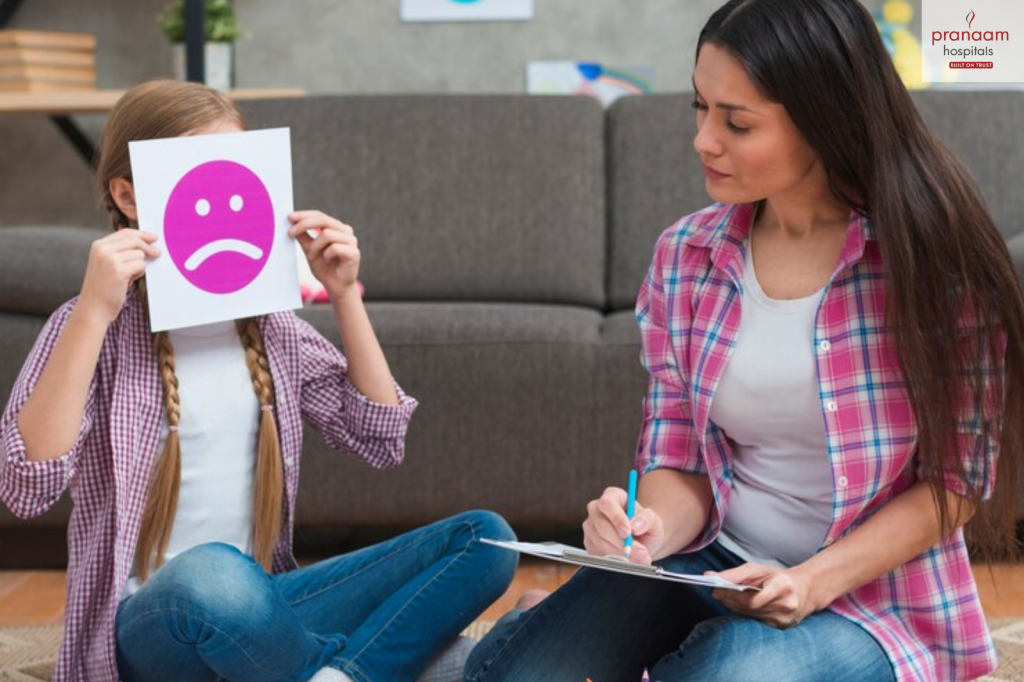Children Mental Health
To properly assist and interfere when required, parents, carers, and educators must have a thorough understanding of children’s mental health. The following are some vital approaches for assessing and monitoring children’s mental health:
Monitor Behaviour Changes:
– Observe for any notable shifts in your child’s conduct.
– Sudden mood swings, an increase in irritation, withdrawal from social activities, adjustments to food or sleeping schedules, or a decline in educational achievement are a few signs like this.
Actively listen:
– When your children start talking to you. Show them that you understand their feelings, even if you don’t fully get it.
– Keep an eye on your kids when they speak. This demonstrates your keen interest in the discussion.
– Avoid the temptation to complete or interrupt your child’s speech.
– Let children a chance of fully expressing themselves, even though it takes some time.
Ask queries:
– Asking your child directly about how they are feeling is okay. You can ask, “How about you today?”
Play:
– Play is a fundamental outlet for a child’s self-expression.
– Playing with your child might help you understand their feelings and concerns.
Observe Social Interactions:
– Pay attention to how your children interacts with friends and peers.
– Changes in social interactions or friendship habits may be signs of mental health issues.
Educate Yourself:
– Get to know the most typical mental health conditions affecting kids, including anxiety, depression, and ADHD.
– Knowing the symptoms and indicators might assist you in determining when your child might require support.
Consult the Teachers:
– If your child is enrolled in school, keep the lines of communication open with the staff.
– Teachers frequently have important knowledge about how kids behave and perform in a classroom.
Get expert advice:
– Consider contacting a mental health expert if you see persistent or alarming changes in your child’s behaviour, feelings, or general wellbeing.
– The assessments and advice of a child psychologist or counsellor are available.
Early Care:
– Addressing children’s mental health issues requires early intervention.
– Never hesitate to seek out expert help if you suspect a problem.
– The earlier issues are identified and addressed, the better the outcomes.
Encourage an active lifestyle:
– Make sure your child has a good diet, gets enough sleep, and gets in regular exercise to encourage them to have an active lifestyle.
– Maintaining a healthy way of life enhances mental health.
Encourage emotional ability:
– Encourage your child to have emotional intelligence by teaching them about emotions, coping mechanisms, and problem-solving techniques.
– Help them realise that it’s acceptable to seek assistance when necessary.
Also Read: How to take care of your child after vaccination?
Follow us on: Facebook


